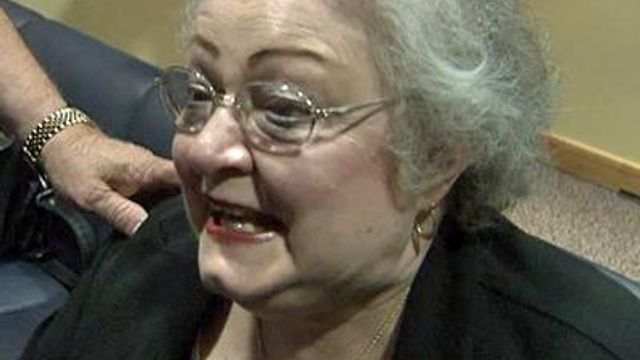Cary man to get new hearing in 1991 murder
The North Carolina Innocence Inquiry Commission unanimously decided on Friday to send an appeal from inmate Gregory Taylor to a three-judge panel who will oversee a new trial.
Posted — UpdatedThe panel can free Taylor if they find clear and convincing evidence of his innocence.
Taylor was convicted in 1993 of the stabbing and beating death of 26-year-old Jacquetta Thomas, who worked as a prostitute. Police found her body on Blount Street early Sept. 26, 1991.
Taylor, who has served 16 years in prison for the crime, has maintained his innocence.
“There is an answer to a lot of prayers,” Gregory Taylor's mother, Martine Strickland, said following the announcement.
The decision came after a day of testimony that included statements from another inmate who said he killed Thomas.
In a recording, Craig H. Taylor, 40, who is serving time as a habitual felon and drug dealer, told an investigator that he hit Thomas in the face and beat her to death with a bat. He said he tried to make look as if she were raped but did not rape her.
The two men share a last name, but are not related.
The interviewer asks, "When did you know she was dead?" Craig Taylor responds, "When she stopped."
The interviewer also asks, "Did you mean to kill her?" He answers, "I don't know what came over me."
In a letter to the commission dated Aug. 23, Craig Taylor wrote, "Tell Greg that I’m very sorry that he had to spend 16 years in prison for a crime he's never committed. I can’t make up for the 16 years he’s lost, but thanks to my confession he has a new start at freedom."
Relatives of Gregory Taylor cried when they heard that letter read at the hearing.
Wake County District Attorney Colon Willoughby said he is a “little skeptical” about Craig Taylor’s claims. Willoughby said the inmate has also confessed to other murders that were not substantiated.
Innocence Commission investigators said on Friday that Craig Taylor confessed to killing homeless people, but the Raleigh Police Department could not find the cases.
"We will proceed cautiously," Willoughby said.
Gregory Taylor's brother, Eddie Taylor, said in a press conference after the commission's decision that the family has "known he was innocent all along." He thanked the commission for its work.
Gregory Taylor’s daughter, Kristen Puryear, was 10 years old when her father went to prison.
“I have gotten married. I have had a son. I am just grateful he will be able to watch my son grow up and be apart of his grandson’s life and catch up on some lost time,” Puryear, now 26, said.
Commission officials said the only other case they sent to a three-judge panel took nine months before there was a resolution. Officials noted there is no determination how long it will take for Gregory Taylor's case.
Commission investigator Sharon Stellato said on Thursday that Craig Taylor asked her what would happen if he confessed to Thomas' murder. He was in Raleigh at the time of Thomas' death, she said.
Friday afternoon, experts testified that Thomas' injuries were consistent with blunt force trauma from a heavy, wooden object.
An expert also testified that he found Craig Taylor's confession to be credible. His story, the expert said, was consistent with police reports, including details that weren't in early media accounts of the killing. Craig Taylor, who has HIV, seemed to be acting from a desire to get the crime off his conscience, the expert said.
Witnesses said that police questioned both Taylors and a third man, Johnny Beck, on the day Thomas' body was found. All three denied killing her. Charges against Johnny Beck were eventually dismissed.
On Thursday, the commission heard from a prostitute who testified about seeing three men with Thomas and doing drugs that night.
Her testimony to the commission had inconsistencies from her testimony at Gregory Taylor's trial, including the race of the men who she remembered doing certain things, the color of a truck and the time she saw the men.
The commission also learned that DNA testing was inconclusive but did not match Gregory Taylor and heard from witnesses who contradicted or were inconsistent compared to their testimony in 1993.
Commission investigators said they found no evidence of prosecutorial misconduct.
• Credits
Copyright 2024 by Capitol Broadcasting Company. All rights reserved. This material may not be published, broadcast, rewritten or redistributed.





